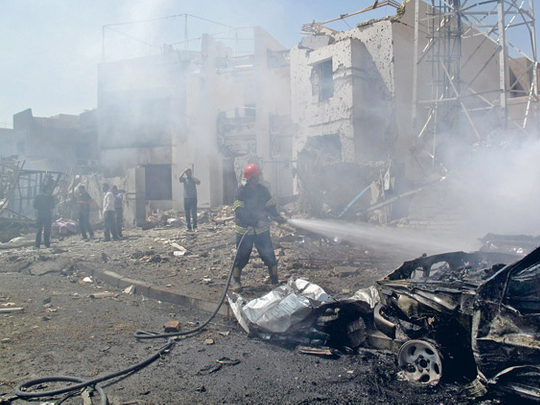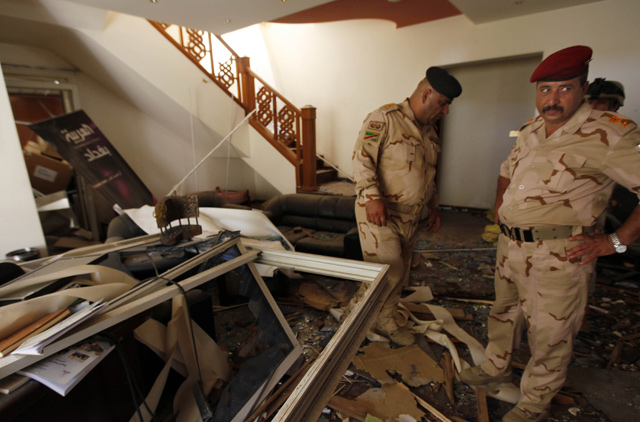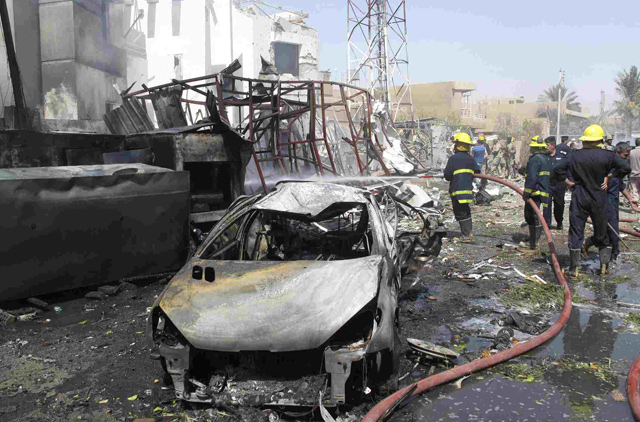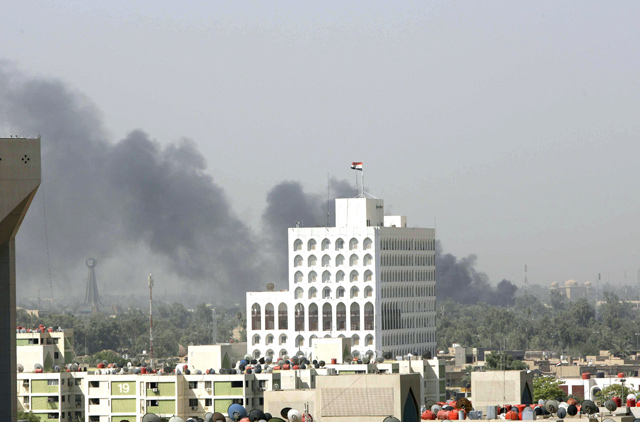
Dubai: Monday's bombing of Al Arabiya's Baghdad office brought the death toll of the channel's employees to 15 since the start of the war in Iraq in 2003.
Four people were killed and 15 were injured on Monday when a suicide bomber detonated a 120kg bomb in a van outside Al Arabiya's Baghdad office at 9.25am Baghdad time.
According to the Iraq-based Journalism Freedom Observatory, a total of 249 media workers have been killed since the US-led invasion of 2003.
"The intensity of the bomb and its timing means that it was intended to destroy the whole office and kill everyone there. It was a professionally planned attack," said Mazen Hayek, spokesperson for Al Arabiya.
Among the injured were security guards, internal administration staff and those from news production teams, he said. Iraq's internal security services have discovered the identity of the perpetrator, said Hayek, but they did not specify if he or she belongs to any known militant group operating in the country.
Having lost a total of 15 Al Arabiya staff killed and "tens injured" in the past seven years, Hayek said the channel was being made to pay the "price of freedom of expression".
The channel is said to be the most popular news channel in Iraq. In September 2008, its Baghdad bureau chief Jawad Hattab escaped unharmed after spotting a bomb attached to his car, which was eventually detonated by remote control.
In October 2006, a car bomb targeting the channel's then bureau killed seven people and wounded 20.
In February 2006, presenter Atwar Bahjat and two colleagues were kidnapped and murdered in the mainly Sunni town of Samarra as they covered the bombing of a revered Shiite shrine, an attack that plunged the country into sectarian bloodshed.
The channel, which is perceived by extremist groups as being too pro-Western, has been no stranger to attack by suspected Sunni Arab insurgents or pressure from Iraq's Shiite-led government.
Its ownership by Saudi Arabia and other Gulf investors has also made it the focus of suspicions by Iraq's Shiite-led government that its news agenda reflects the concerns of their Sunni governments.
In September 2006, it was banned from reporting out of Iraq over its coverage of key parliament proceedings.
— With additional inputs from AFP














